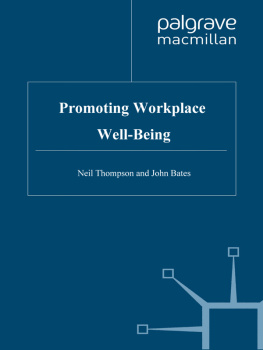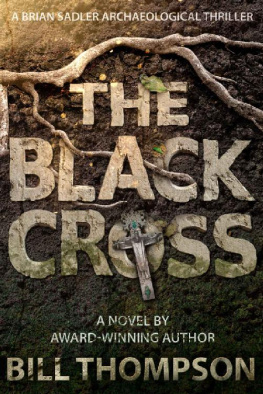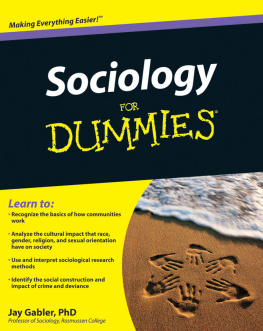
Applied Sociology
Sociology offers fascinating insights into social life that tell us so much about people and society. But what can we do with those insights? How can we put them to good use? That is exactly what this book is all about. It explores the practical value of sociology, how sociological understanding can be of help in a variety of settings.
Neil Thompsons wealth of experience in using sociology in practice comes shining through in this clearly written and accessible text that succeeds in conveying complex ideas without oversimplifying them. Key concepts are explained and clear links are drawn with how the ideas can be used to inform professional practice and cast light on a wide range of situations across all sectors of working life, and in our personal lives too.
So, whether you are involved in the helping professions or any other occupation where success depends on having a good understanding of people; a student of sociology wanting to put your learning into practice; or simply interested in how sociology can help address social issues, this book offers a solid foundation of understanding. It is an ideal text for anyone seeking to use sociological ideas to make a positive difference.
Neil Thompson PhD, DLitt, is an independent writer and educator with over 40 years experience in the people professions. He is a sought-after consultant and international conference speaker, and is currently involved in developing a range of online learning resources and surveys. His website and blog are at www.neilthompson.info.
First published 2018
by Routledge
711 Third Avenue, New York, NY 10017
and by Routledge
2 Park Square, Milton Park, Abingdon, Oxon, OX14 4RN
Routledge is an imprint of the Taylor & Francis Group, an Informa business
2018 Taylor & Francis
The right of Neil Thompson to be identified as author of this work has been asserted by him in accordance with sections 77 and 78 of the Copyright, Designs and Patents Act 1988.
All rights reserved. No part of this book may be reprinted or reproduced or utilised in any form or by any electronic, mechanical, or other means, now known or hereafter invented, including photocopying and recording, or in any information storage or retrieval system, without permission in writing from the publishers.
Trademark notice: Product or corporate names may be trademarks or registered trademarks, and are used only for identification and explanation without intent to infringe.
Library of Congress Cataloging-in-Publication Data
A catalog record for this book has been requested
ISBN: 978-1-138-62969-1 (hbk)
ISBN: 978-1-138-62970-7 (pbk)
ISBN: 978-1-315-21026-1 (ebk)
Typeset in Avenir and Dante
by Apex CoVantage, LLC
For Jason
Contents
PART ONE
Making Sense of Sociology
PART TWO
Making Sense of Society
PART THREE
Sociologically Informed Practice
Sociology is just common sense made difficult is a refrain I have heard many times over the years. It highlights the significant gap between common (mis)perceptions of sociology and the actual reality. Part of the reason for this gap is that we are constantly immersed in society and have developed an understanding of it from an early age. Unless they already have a background in nuclear physics, anyone picking up a book on that subject is likely to be starting largely from scratch, with few preconceptions. However, anyone coming to sociology for the first time will already have some well-established understandingsimplicitly at leastof what society is all about and how it operates.
This has a tendency to create (at least) two sets of problems:
- Inaccuracy The understandings developed will often be inaccurate. For example, it is commonly assumed that women talk more than men. However, as we shall see in , the reality is far more complex than this. Such inaccuracies are not just technical matters of minor significance; they can affect how we relate to one another and decisions we make about the circumstances we find ourselves in.
- Overgeneralization Something that may be perfectly true and accurate in one context may not apply in other contexts. If, however, that truth is overextended to apply across the board, difficulties may arise. For example, what is considered good manners varies from culture to culture. What is deemed acceptable in one culture may be regarded as offensive in another. Mistakenly seeing someone elses culture as deficient, rather than just different, can therefore be a recipe for (unnecessary) conflict and strife.
Sociology, then, is not common sense made difficult, but it does involve questioning what counts as common sense in order to highlight the power and impact of taken-for-granted assumptions. That can be difficult at times, as it involves an element of unlearning parts of what we have been taught through our upbringing, but the rewards are certainly worth it. This is because sociology helps us to see society in a new light, to appreciate the complex processes and interactions that are going on all around us that normally fade into the background, like the wallpaper.
Seeing society in a new light can be not only fascinating and exciting, but also very usefulhelping us to develop a much fuller and broader understanding of people; the social contexts in which people live and work, struggle and thrive; the problems we face and the potential solutions; and the opportunities to make a positive difference to society and to human well-being. It is no exaggeration to say that sociology can profoundly change our outlook on life. This is because we grow up with a range of filterswe are taught to notice certain things and pay them attention, while disregarding other things that are made to seem of little or no importance. For example, we are generally encouraged to see life and society in individualistic terms, to conceive of society as a collection of individuals. However, sociology teaches us that individuals are important, but they are just one part of the story. There are also groups, collectivities, structures, processes and a myriad other things that are highly important elements of our experience.
Sociology allows us to put those filters to one side while we examine society more closely. Of course, we cannot keep those filters to one side, as we are part of society, but by being aware that they are there and suspending their use temporarily, we can become aware of some fascinating and very important insights that open up new vistas. This is particularly significant when we focus on applied sociology, as these insights and these vistas mean that we can have a much fuller picture of the situations we are dealing with.
Another key element of sociology is its role in questioning aspects of society and social life. It is a process of critical questioningthat is, looking critically at whatever aspect of society we are focusing on. But this is where another common misconception of sociology can arise. There is a significant difference between critique (questioning taken-for-granted assumptions) and criticism (adopting a negative attitude, attacking). Adopting a critically questioning approach is a key part of how sociology manages to open up new vistas. But that is far removed from the much narrower idea of criticizing society.
Sociological study will often highlight aspects of society that are problematic in one or more ways, and different theorists may come up with different explanations of what is involved. So, there will be times when sociology is critical in the everyday sense of criticizing, but we need to be aware that this is not what is meant when we talk about critical sociology, critical analysis or critical practices. The emphasis needs to be on questioning, on not taking things at face value, and that is what can make sociology as an applied undertaking so valuable and worthwhile.









